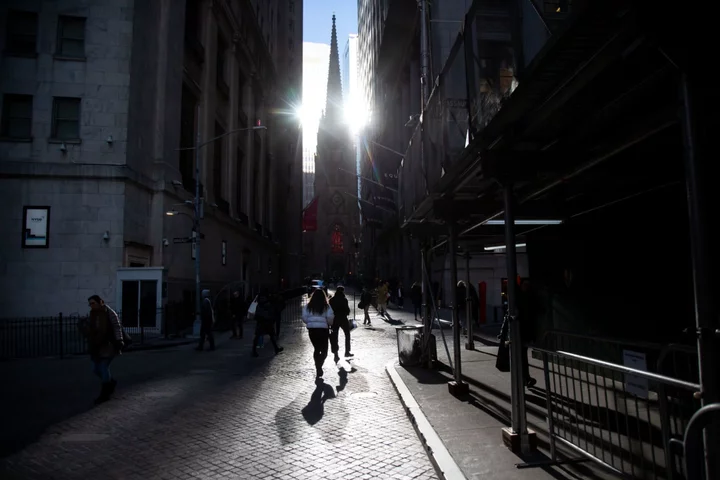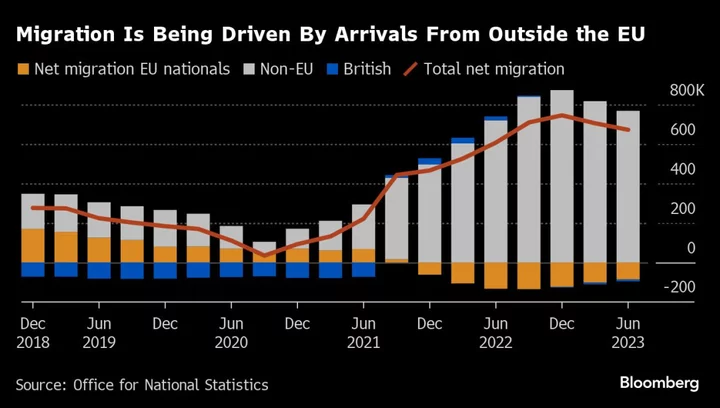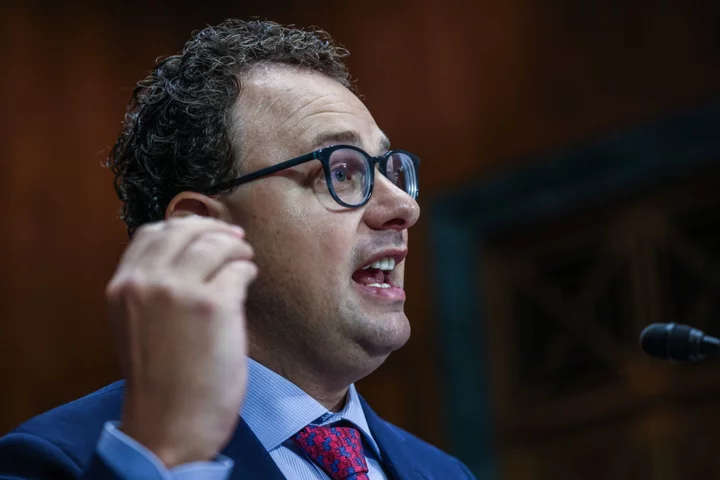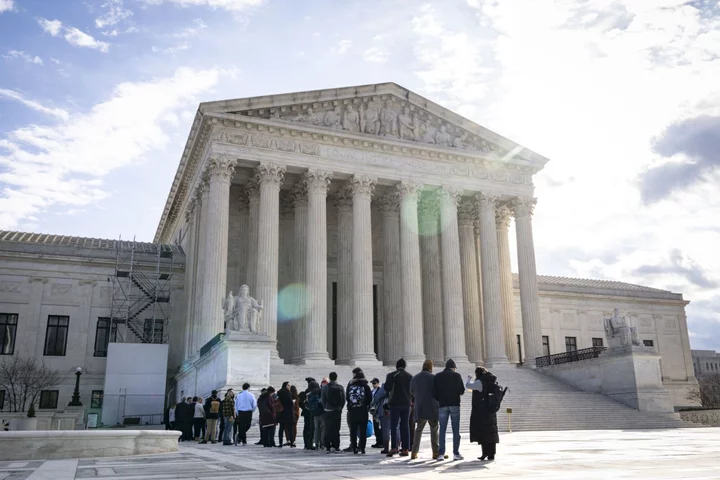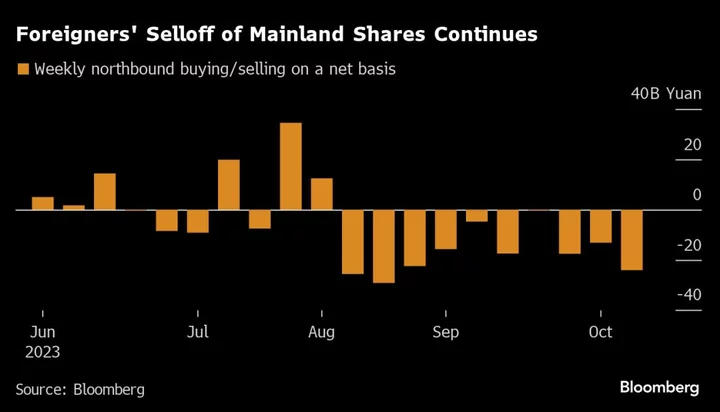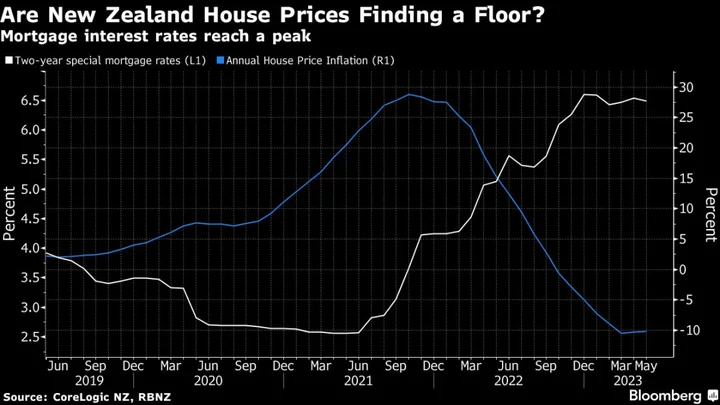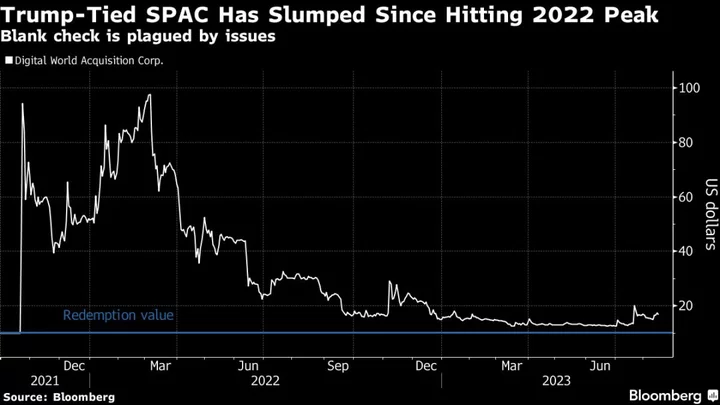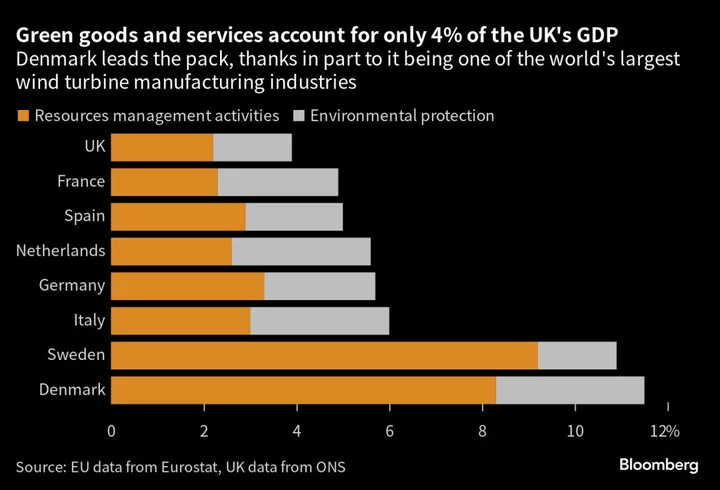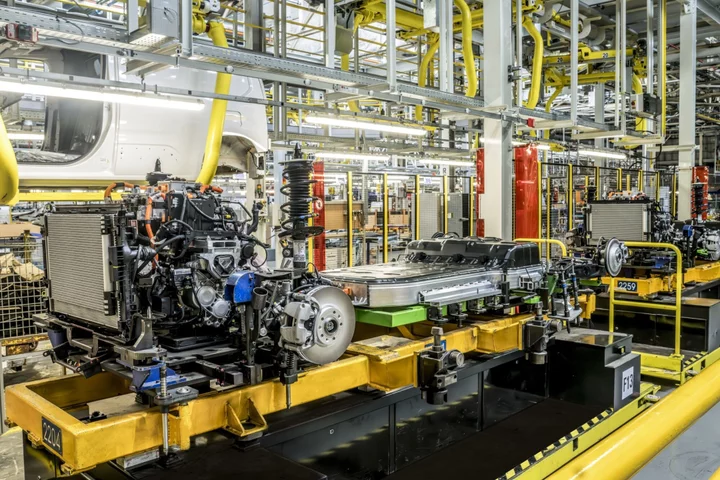US investors who spent years fighting strict limits on their ability to invest in China scored a victory Wednesday when President Joe Biden released an order imposing only light curbs on the flow of money to the world’s second-largest economy.
But many of those same venture firms fret that future restrictions — whether from the Federal government or individual states — will be far less investor friendly.
The new rule would bar US investors from taking stakes in some Chinese semiconductor, quantum computing and artificial intelligence firms. It’s narrower than previous versions, and will not require the dismantling of earlier investments. Yet while the wording sparked relief in some corners of the financial world, many investors now believe the executive order is the opening salvo for the administration as it looks to ensure that American VCs don’t give China an edge in developing technology that has potential military applications.
“US investors should interpret the EO as the first chapter of a book,” said H.K. Park, managing director for Crumpton Global, a Washington-based consulting firm. “Other initiatives at the federal and state level with broader scopes may come to fruition.”
For example, he said, the special committee on the Chinese Communist Party is advocating for the audit of past investments in Chinese firms, the Senate has approved legislation that would require the disclosure of new investments, and individual states have taken their own actions. The state of Indiana recently enacted legislation requiring its pension fund to divest from investments in China.
“Don’t expect a narrowly targeted national security program to stay narrow — and plan accordingly,” said James Maloney, managing partner at Tiger Hill Partners, which advises investment firms on government policies.
The industry’s ability to stave off major disruptions so far is partly thanks to VCs’ yearslong push in Washington to maintain a version of the investing status quo. Lobbying efforts to weaken provisions of the latest executive order were effective, according to a person with familiar with the matter who asked not to be identified discussing private conversations.
One major concession included limiting the order to exclude past investments, the person said. The industry’s position was that it would be too difficult to untangle past deals, and that it was unfair to penalize investors for following the law at the time.
US tech investors often have outsize sway in politics. “They’re heavy contributors, and we have an election coming up,” said Jeff Fiedler, a former commissioner at the US-China Economic and Security Review Commission. “Both parties are hesitant to rein in private equity and venture capital.”
Long before this week’s order, the specter of legislation along with rising geopolitical tensions had prompted many firms to pull back from China. Funding to Chinese startups with participation from US investors was about $200 million in the second quarter of 2023, according to data compiled by research firm PitchBook. That’s a fraction of the $2.4 billion in investments into Chinese startups in the same period last year, and far lower still than the $19.7 billion in deals in the relatively uncomplicated days of 2018.
The dip corresponds with a broader falloff in global VC investing, but was far more severe. Global investments with participation from US investors declined 51% during the second quarter of 2023 from the year before. By comparison, investments in Chinese startups declined 92%. In addition to international friction, China’s tech sector has also suffered from government crackdown that in recent years has limited the upside for many startups in the country.
The executive order will not target every tech investment in China. The new rule applies only to sensitive technology and those that could be used in a military or surveillance context. One notable exception is space, said John Carlin, a lawyer at Paul, Weiss, Rifkind, Wharton & Garrison and a former Justice Department official. But while space-related companies are not mentioned in the executive order, Carlin said he expects the sector will be subject to future scrutiny.
“This is narrower than people expected,” Carlin said. “This is a cautious first step.”
Some industry players celebrated the executive order. “It makes good strategic sense to slow down capital flow to a foreign adversary and makes even more sense to speed up domestic investment in cutting-edge science,” said Josh Wolfe, co-founder of Lux Capital. “Overall this is a net-positive decision, and implementation will be nuanced.”
Global tech trade association the Information Technology Industry Council said in a statement it appreciated the administration’s “risk-based approach” to overseas investing. And Mike Brown, partner at Shield Capital, said the rule was “a good idea and it’s far overdue.” Brown added that the executive order was likely the first in a series of steps the US would take to maintain its technological edge over China. “There will be more to come because the relationship is complex,” he said. “It goes beyond the money.”
Other VCs have raised concerns that if the US steps back from investing in Chinese startups, other countries will simply step in to fill the void. “We hope that the administration will make more progress with US allies and partners to advance common interests and prevent an otherwise unilateral US policy from disadvantaging American companies vis-a-vis foreign competitors,” the US-China Business Council, which includes VC firms as members, said in a statement. Lux’s Wolfe said the possibility that US investors would simply be replaced by VCs from other countries is the “main downside” of the legislation.
--With assistance from Dawn Lim.

